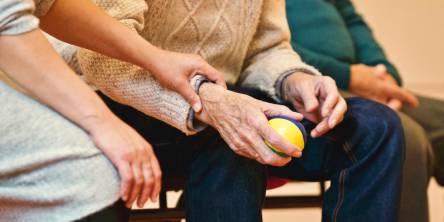How to Recover from Tendonitis Faster
Tendonitis is a tendon inflammation that can develop in any tendon of your body. The cause of its development varies according to the age of the patient. In addition, there are general causes, common for any age group.
Specific Causes for Developing Tendonitis
An inadequate strain is among the most common causes of developing inflammation in people above 40. This is a problem of many athletes and musicians, whose tendons undergo a colossal strain due to repetitive movements.
In the elderly age, the body tissues lose their elastin due to age changes. The amount of elastin fibers that provide the tendon with elasticity and ability to stretch gets reduced. On the contrary, the amount of collagen that makes them rigid grows with age. These changes create conditions for a fast inflammatory process development if there is even the slightest precondition.
Common Causes for Developing Tendonitis
These causes can occur in people of any profession and age.
- Anatomic skeletal pathologies (different length of legs, wrong bone position, leg crookedness, flat-footedness etc.)
- Injuries in the areas of the tendon
- Infections
- Autoimmune diseases
- Metabolic disorders
Symptoms of Tendonitis
The symptoms develop with the progress of the disease and may lead to a ruptured tendon if neglected. These are:
- Pain after intensive work or training that becomes constant with time. It increases when you move actively or press on the inflamed tendon.
- As the inflammation progresses, there may be problems with joint mobility, reddening, increased skin temperature at the place of inflammation.
- Cracking sounds and crepitation in the inflamed tendon
- The appearance of compactions in the tendon – this is how the fibrous tissue replaces the damaged one. Sometimes there are calcium gatherings, especially in shoulders.
How to Take Care Of Yourself with Tendonitis
First, you should visit a doctor. Missing even one day of treatment matters, especially if you are an athlete or musician who needs to recover as fast as possible. Here are the basics you need for your sick tendon.
- Provide immobility for the inflamed tendon. The period depends on how severe the inflammation is. Usually, it’s about 1-4 weeks. If after the fourth week there is no relief, the disease may have gone chronic.
- Follow a proper diet. It will help your body overcome the disease. Increase the amount of proteins, amino acids, minerals, vitamins and balance the hormones. A specialist will help you to maintain a healthy menu.
- Put cold on your sore tendon but do it only for the two first days you feel the pain. Cold makes the blood vessel constrict and makes it difficult for nutrients and oxygen to get to the inflamed tendon, which is crucial for recovery.
- Don’t get too excited about analgesics. They relieve your pain but may slow down the recovery process if taken too long.
- Warm up your body with exercises (but exclude your inflamed tendon). This will boost the blood circulation and provide it with all the necessary nutrients for a faster recovery.
Alternative Treatment Options
If the conservative measures had little effect, but you feel skeptical about getting a surgery, you can try an alternative tendonitis treatment strategies. These are Eastern alternative medicine techniques and innovative stem cell therapy. Stem cell therapy is a fairly new treatment option which has also been used to successfully treat degenerative knees, hips, shoulders, feet, and ankles. But they have been particularly successful in treating tendonitis.
Still, you should be careful with them, and if you don’t see relief soon, you will have to look for towards surgery. The disease will progress if not treated properly, so don’t waste your time and solve the problem.


